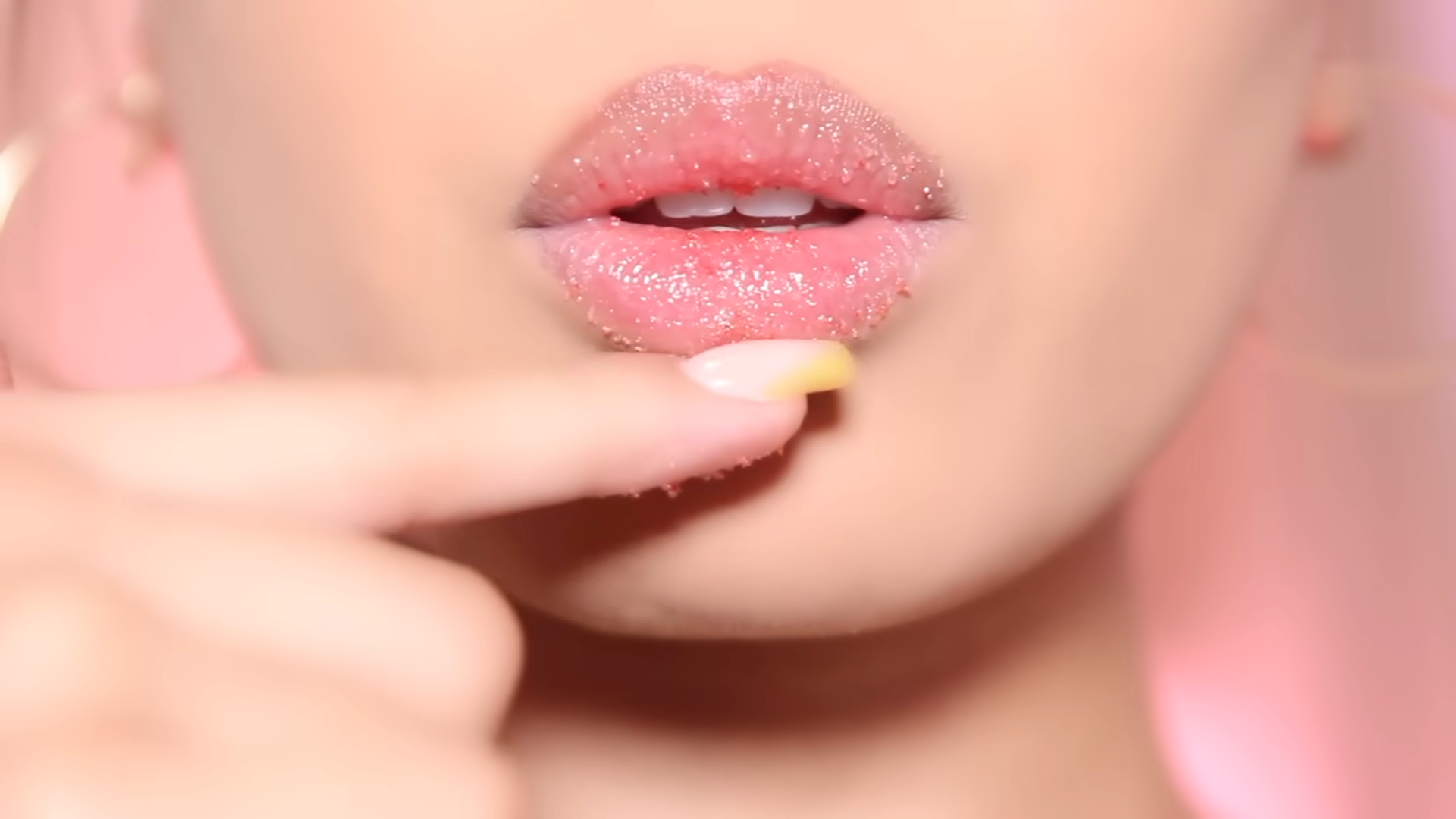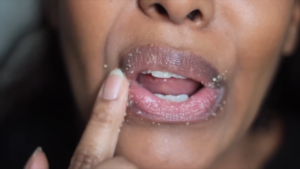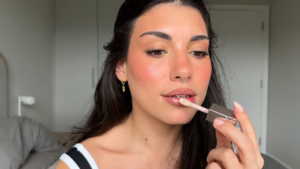Peeling lips are a common issue characterized by dry, flaky, and sometimes painful skin on the lips. This condition can result from various factors, including environmental influences, habits, and health conditions. Understanding the root causes and implementing effective treatments can help maintain healthy, smooth lips.
The skin on our lips is thinner than the rest of the body and lacks oil glands, making it more susceptible to drying out. Environmental factors like extreme weather conditions, habitual behaviors like frequent lip-licking, and certain health conditions contribute to the loss of moisture and integrity of the lip skin, leading to peeling. This article explores the causes, common occurrences, timing, and effective treatments for peeling lips.
What Causes Peeling Lips
Peeling lips can be caused by several factors such as excessive sun exposure, cold or dry weather, dehydration, and frequent licking of the lips. Allergic reactions to lip products or certain foods can also contribute to this issue. Additionally, nutritional deficiencies, such as a lack of vitamins B2, B6, and iron, can lead to dry, peeling lips.
Sun exposure can damage the delicate skin on the lips, causing it to become dry and start peeling. Cold or dry weather reduces the moisture in the air, leading to chapped lips. Dehydration from inadequate water intake or excessive consumption of dehydrating substances like caffeine and alcohol can also dry out the lips. Addressing these underlying causes is crucial for preventing and treating peeling lips.
Where Does It Commonly Occur
Peeling lips occur primarily on the lips but can extend to the skin around the mouth. This condition is especially common in places with extreme weather conditions, such as very cold or very dry environments. Indoor heating and air conditioning can also dry out the air, exacerbating lip peeling.
Extreme weather conditions, whether hot or cold, can strip moisture from the lips, causing them to peel. In dry climates, the lack of humidity in the air can lead to dryness and peeling. Even in controlled indoor environments, factors like heating and air conditioning can reduce the air’s moisture, negatively affecting lip health. Using a humidifier and protecting the lips can mitigate these effects.
Why Does It Happen
Peeling lips happen because the skin on the lips is thinner and lacks oil glands, making it more susceptible to drying out and becoming damaged. Environmental factors, habitual behaviors like lip-licking, and certain health conditions all contribute to the loss of moisture and the integrity of the lip skin, leading to peeling.
The absence of oil glands in the lips means they cannot produce the natural oils that help keep skin moisturized. Environmental factors such as wind, sun, and dry air can further dehydrate the lips. Habits like licking lips may provide temporary relief but ultimately remove moisture, worsening the condition. Recognizing and avoiding these triggers is essential for maintaining healthy lips.
When Does It Usually Happen
Peeling lips can occur at any time but are more common during winter months when the air is colder and drier or during summer when sun exposure is at its peak. It can also occur when individuals are dehydrated, either from not drinking enough water or from consuming excessive amounts of caffeine or alcohol, which are dehydrating.
Winter air tends to be dry and cold, leading to chapped and peeling lips. In summer, increased sun exposure can cause sunburn on the lips, resulting in peeling. Dehydration from insufficient water intake or consuming dehydrating beverages can occur year-round, exacerbating lip dryness. Maintaining hydration and protecting lips from extreme weather can help prevent these issues.
How Can You Treat Peeling Lips Effectively
Effective treatments for peeling lips include staying hydrated by drinking plenty of water and using a humidifier to add moisture to the air. Applying lip balm that contains hydrating and healing ingredients such as beeswax, shea butter, or coconut oil can help lock in moisture. Avoiding lip products with irritants like fragrances or dyes is also beneficial. Additionally, gently exfoliating the lips with a soft toothbrush or a sugar scrub can remove dead skin cells and improve the absorption of moisturizing products.
Stay Hydrated
- Drinking adequate water throughout the day helps maintain overall hydration and prevents lips from drying out.
- Using a humidifier at home, especially in dry climates or during winter, adds moisture to the air, benefiting both skin and lips.
- Consuming hydrating foods like fruits and vegetables can also contribute to overall hydration and lip health.
- Limiting the intake of dehydrating beverages like alcohol and caffeine can help maintain better moisture levels in the body.
Use Appropriate Lip Products
- Applying lip balms with hydrating ingredients such as beeswax, shea butter, or coconut oil can lock in moisture and protect the lips from drying out.
- Avoiding lip products with irritants like fragrances, dyes, or alcohols can prevent further irritation and peeling.
- Using a lip balm with SPF can protect the lips from sun damage, reducing the risk of sunburn and peeling.
- Regularly reapplying lip balm, especially in harsh weather conditions, ensures continuous protection and hydration.
Conclusion
In conclusion, peeling lips are a common and uncomfortable issue caused by various environmental, habitual, and health-related factors. By understanding what causes peeling lips and where it commonly occurs, individuals can take proactive steps to prevent and treat this condition. Maintaining proper hydration, using appropriate lip products, and protecting lips from extreme weather can significantly improve lip health.
Addressing the underlying causes and implementing effective treatments can help maintain healthy, smooth lips. Regular hydration, using protective lip balms, and avoiding irritants are key strategies in achieving and maintaining lip health. By following these guidelines, individuals can prevent and treat peeling lips, ensuring their lips remain soft and healthy year-round.








